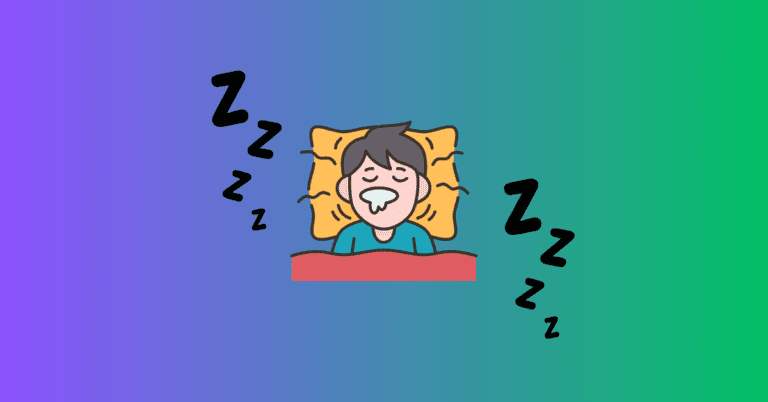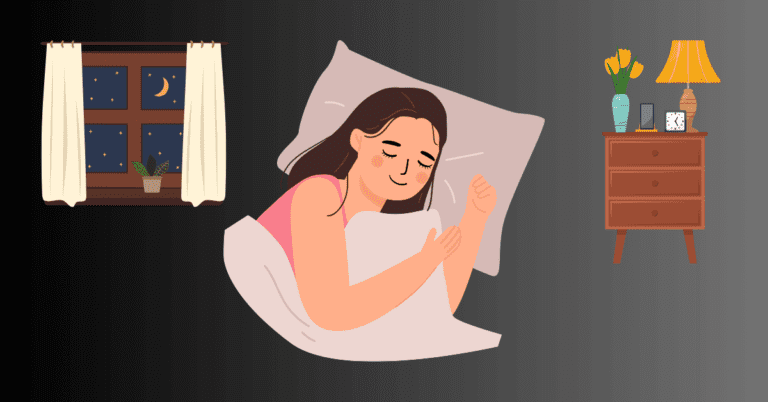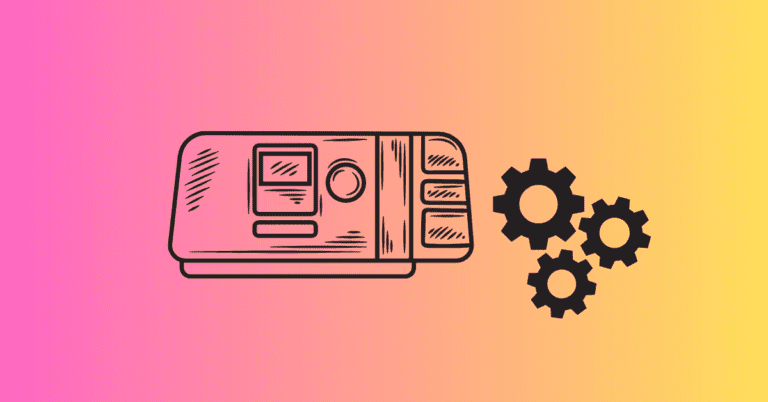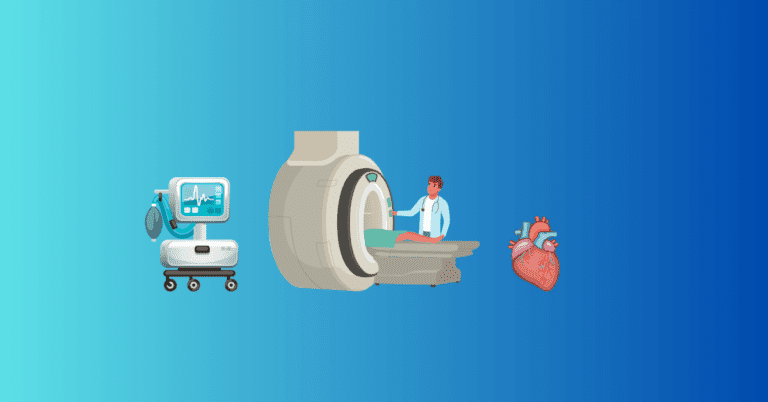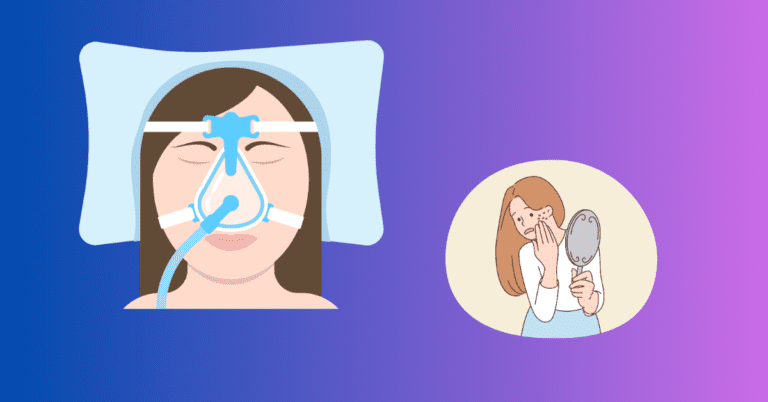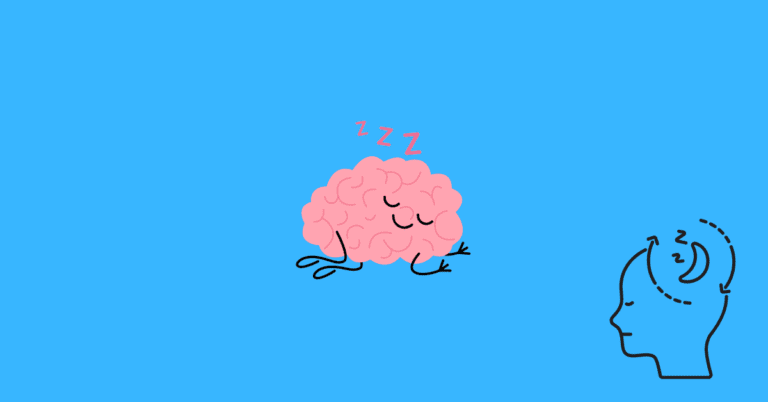ASV vs BiPAP vs CPAP: Which Is Right for You?
Sleep apnea is a condition that affects millions of people worldwide, often without them even knowing.

And I’m one of these people. I was diagnosed with severe obstructive sleep apnea back in 2015, but I’ve probably had it most of my life.
A CPAP machine has turned my life around, and I want the same for you.
Most of the time, a CPAP machine is needed to treat sleep apnea, but you have probably found yourself here because you’re working through and trying to understand the difference between CPAP, BiPAP, and ASV.
What do these mean? And more importantly, which one is right for you?
In this comprehensive guide, I’ll explain each therapy type, explain who it’s best for, and share my own experience. Let’s get your sleep (and life) back on track.
🌀 What Is CPAP Therapy?
CPAP stands for Continuous Positive Airway Pressure. It’s the most commonly prescribed treatment for obstructive sleep apnea (OSA), which occurs when the airway physically collapses or becomes blocked during sleep. This is my condition.
A CPAP machine delivers a steady stream of pressurized air through a mask to keep your airway open.
✅ Who CPAP Is Best For:
- People diagnosed with obstructive sleep apnea
- Loud snorers
- Those without significant central apnea events
- First-time therapy users
⚙️ How CPAP Works:
- Pressure is constant: whether you’re breathing in or out, the pressure remains the same.
- It’s set by a sleep tech or automatically adjusted (if you’re using an AutoSet model).
🔗 Here are the CPAP machines I recommend
📉 Downsides of CPAP
- Can feel unnatural, especially when exhaling
- May cause dryness or bloating
- Not effective for central or mixed apnea
🥇 My CPAP machine top pick: ResMed AirSense 11 AutoSet – See my review
🌬 What Is BiPAP Therapy?
BiPAP (or BPAP) stands for Bilevel Positive Airway Pressure. It delivers two levels of pressure:
- IPAP – Higher pressure when you inhale
- EPAP – Lower pressure when you exhale
This makes BiPAP feel more natural, especially at higher pressure settings, and it’s ideal for people who can’t tolerate standard CPAP therapy.
✅ Who BiPAP Is Best For:
- People with moderate to severe OSA
- Those with obesity hypoventilation syndrome
- Patients with neuromuscular disorders
- Anyone struggling with high CPAP pressure
🎓 Learn more in my CPAP vs BiPAP comparison
⚙️ BiPAP vs CPAP:
| Feature | CPAP | BiPAP |
|---|---|---|
| Pressure | Constant | Two levels (inhale/exhale) |
| Comfort | Moderate | Much easier to exhale |
| Use Case | Simple OSA | OSA + complex breathing needs |
Affiliate Suggestion:
🥇 Check out the best BiPaP Machines available today
What Is ASV Therapy?
ASV (Adaptive Servo-Ventilation) is an advanced machine type used primarily for central sleep apnea (CSA) and complex sleep apnea. Unlike CPAP and BiPAP, which maintain a preset pressure, ASV constantly adjusts your pressure based on your breathing pattern in real time.
✅ Who ASV Is Best For:
- People diagnosed with central sleep apnea
- Those with complex sleep apnea (mix of OSA + CSA)
- Patients with Cheyne-Stokes respiration
- Anyone who still has high AHI after using CPAP or BiPAP
🔍 How ASV Works:
- Tracks your breathing using a built-in algorithm
- Automatically increases pressure if you stop breathing
- Delivers a breath if you don’t take one
🎓 So how does ASV work? This article explores the science behind ASV.
📉 Downsides of ASV:
- More expensive
- Requires a specific diagnosis
- Not suitable for all patients (e.g., with reduced ejection fraction)
🥇 My top ASV machine pick: ResMed AirCurve 11 ASV – See my review
📊 Full Comparison Table: CPAP vs BiPAP vs ASV
| Feature | CPAP | BiPAP | ASV |
|---|---|---|---|
| Pressure Type | Constant | Inhale/Exhale split | Real-time adaptive |
| Best For | Obstructive Sleep Apnea | OSA + pressure intolerance | Complex or Central Sleep Apnea |
| Comfort | Basic | Better | Best (fully responsive) |
| Cost | $ | $$ | $$$ |
| Mask Options | Wide | Wide | Limited (depending on algorithm) |
| Needs Sleep Study? | Yes | Yes | Yes (specialist diagnosis) |
💡 How Do I Know Which Therapy I Need?
Choosing the right machine isn’t about what’s “best”—it’s about what’s best for you.
Here’s a simple guide:
- Start with a Sleep Study
→ You’ll find out if your apnea is obstructive, central, or mixed. - Try CPAP First
→ It’s the first-line therapy and works for most OSA cases. - Switch to BiPAP if CPAP is Uncomfortable
→ Especially if you’re on high pressure or have breathing difficulty. - Go ASV if Your Apnea Is Central or Complex
→ If you feel worse on CPAP or BiPAP, don’t give up—talk to your doctor about central events.
🎓 Still tired despite CPAP? You might have complex sleep apnea.
🛒 Where to Buy – Trusted Machines for Each Type
| Machine Type | Top Choice | Link |
|---|---|---|
| CPAP | Read my ResMed AirSense 11 AutoSet Review | Purchase from Sleep Doctor |
| BiPAP | ResMed AirCurve 10 VAuto | Purchase from Sleep Doctor |
| ASV | Read my ResMed AirCurve 11 ASV Review | Purchase from Sleep Doctor |
✅ Final Thoughts: Don’t Settle for Poor Sleep
Sleep therapy isn’t one-size-fits-all. If you’ve tried CPAP and still feel tired, it may not be your fault—you might need a different approach.
Your best sleep is out there. The right machine, whether CPAP, BiPAP, or ASV, will make you feel alive again.
If you have any comments about ASV vs BiPAP vs CPAP, please leave them in the comments section below.
